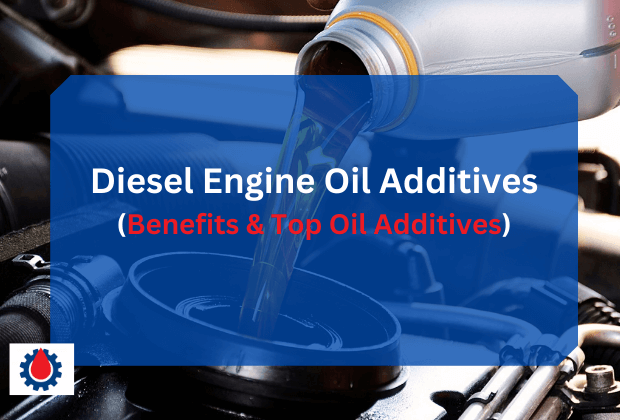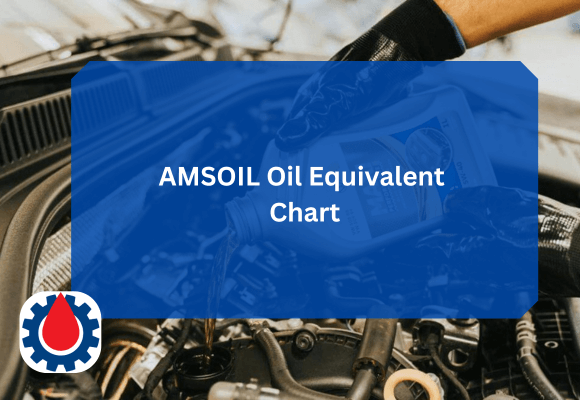Diesel engine oil additives play a central role in achieving these goals, offering a targeted solution for common engine issues. This post takes a closer look at what diesel engine oil additives are, why they matter, and how they can help diesel engines reach optimal performance standards.
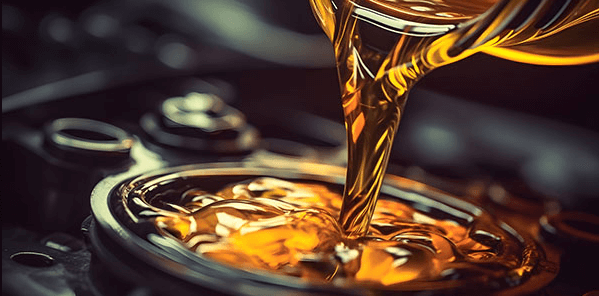
Diesel Engine Oil Additives
Diesel engine oil additives are specialized formulations added to engine oil to bolster its properties, enhancing the oil’s ability to reduce friction, resist thermal degradation, and prevent wear.
Additives help improve oil’s chemical stability, reduce sludge formation, and increase oxidation resistance, all of which are critical in maintaining a diesel engine’s long-term health. Through integrating the right additives, operators can prevent premature engine wear, reduce maintenance costs, and even achieve better fuel economy.
Top Diesel Engine Oil Additives
1. XADO Maximum Diesel Engine Treatment
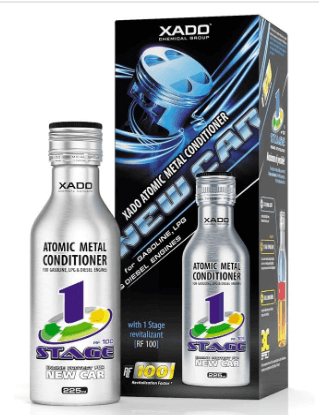
- Key Benefits:
- ✔️ Restores worn engine parts using revitalization technology
- ✔️ Improves compression and fuel efficiency
- ✔️ Reduces noise and vibration
- Best For: Older engines or high-mileage diesel trucks needing metal restoration.
2. Archoil AR9100 Oil Additive
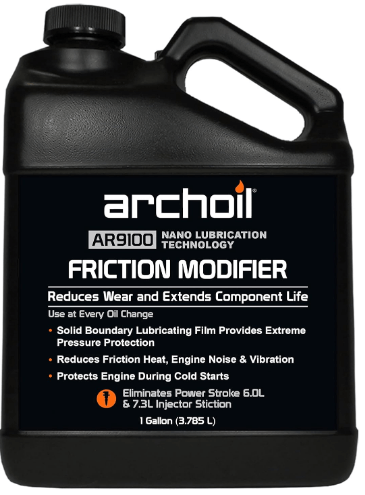
- Key Benefits:
- ✔️ Eliminates cold start problems (great for Power Stroke engines)
- ✔️ Reduces wear, friction, and stiction
- ✔️ Improves fuel efficiency and extends oil life
- Best For: Diesel engines with HEUI injectors, especially Ford 6.0L and 7.3L Power Stroke.
3. Liqui Moly Cera Tec Friction Modifier
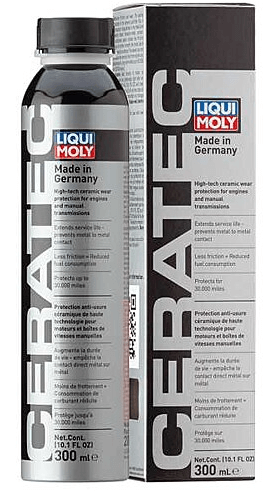
- Key Benefits:
- ✔️ Provides ceramic-based long-term wear protection
- ✔️ Reduces engine noise and friction
- ✔️ Improves fuel efficiency and engine lifespan
- Best For: Newer diesel engines needing extra protection and smoother performance.
4. Hot Shot’s Secret Stiction Eliminator

- Key Benefits:
- ✔️ Cleans and removes sludge/stiction buildup
- ✔️ Improves cold starts and engine efficiency
- ✔️ Reduces injector failures in diesel engines
- Best For: HEUI injector engines suffering from stiction buildup (e.g., Ford Power Stroke).
5. Lucas Heavy Duty Oil Stabilizer
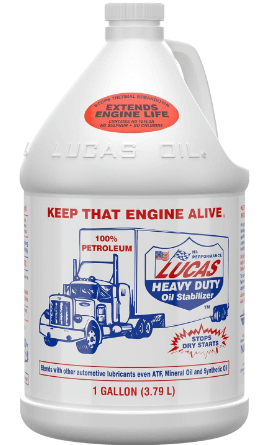
- Key Benefits:
- ✔️ Thickens oil to prevent dry starts and oxidation
- ✔️ Extends oil life and improves lubrication
- ✔️ Reduces friction and wear
- Best For: Older diesel engines or those running in extreme heat or heavy loads.
Read Normal Oil Pressure for Diesel Engines(Norma Pressure Range)
Benefits of Diesel Engine Oil Additives
1. Reduced Friction and Wear
Diesel engines operate under extreme conditions that can lead to significant friction between metal surfaces. Oil additives reduce this friction by creating a protective film, minimizing direct metal-to-metal contact.
Anti-wear agents in oil additives, such as zinc dialkyl dithiophosphate (ZDDP), are specifically designed to protect engine parts, resulting in prolonged engine life and fewer repairs.
2. Improved Engine Cleanliness
Diesel engines are prone to accumulating soot, sludge, and carbon deposits. Detergent and dispersant additives play a pivotal role in keeping these contaminants in suspension, preventing them from sticking to critical engine parts. By keeping the engine cleaner, these additives help maintain efficiency and avoid power loss due to clogged oil passages and sticky parts.
3. Enhanced Oxidation Resistance
The high temperatures generated in diesel engines can accelerate oil breakdown, a process known as oxidation. Oxidized oil forms acids and sludge, both of which are damaging to engine components. Anti-oxidant additives stabilize the oil, extending its useful life and reducing harmful deposit formation.
4. Corrosion and Rust Prevention
Diesel engines are exposed to various forms of corrosion due to high sulfur content in diesel fuel, temperature variations, and moisture. Corrosion inhibitors in diesel oil additives form a protective barrier over metal surfaces, preventing rust and corrosion from compromising engine parts.
This is especially beneficial for engines operating in humid or harsh conditions.
5. Improved Fuel Efficiency
By reducing internal friction and keeping the engine clean, diesel oil additives contribute to better fuel economy. Cleaner engine parts and reduced drag mean less fuel is required to produce power, translating to cost savings for vehicle owners.
Read Can I Use Engine Restorer and Triax Oil Additive Together
Types of Diesel Engine Oil Additives
1. Detergents
Detergents clean and neutralize acidic contaminants, preventing them from accumulating on engine surfaces. They also play a critical role in controlling deposits in high-temperature areas, such as piston rings and valve seats.
2. Dispersants
Dispersants keep particles like soot and carbon in suspension, preventing them from clustering together and forming sludge. This is essential for diesel engines since soot accumulation can significantly hinder performance.
3. Anti-Wear Agents
These additives reduce metal-to-metal wear by forming a protective film. They are especially useful in reducing camshaft and lifter wear, common in diesel engines under high loads.
Read Molybdenum in Engine Oil(Science Behind Molybdenum in Oil)
4. Anti-Oxidants
Anti-oxidants stabilize the oil against heat and prevent degradation, which is crucial in diesel engines operating under high-temperature conditions. This ensures the oil maintains its viscosity and protective properties.
5. Corrosion Inhibitors
Corrosion inhibitors protect against rust and corrosion by creating a thin, protective coating on metal surfaces. This additive is essential for engines operating in high-humidity environments or where sulfur content in fuel is high.
6. Viscosity Index Improvers
These additives help the oil maintain a stable viscosity across a range of temperatures, ensuring that it flows well in cold conditions and retains thickness under heat. This stability is crucial for diesel engines that undergo temperature variations.
7. Friction Modifiers
Friction modifiers are designed to reduce the amount of friction between engine parts. They are particularly helpful in applications where engines face extreme conditions or heavy loads, as reduced friction translates to lower fuel consumption and improved performance.
Read Car Engine Oil Color Chart(Color That Signals Immediate Danger)
When to Use Diesel Engine Oil Additives
Not all diesel engines require additional oil additives, as many modern diesel oils come with comprehensive additive packages. However, using additional additives can be beneficial in specific situations:
- High-Mileage Engines: Older engines benefit from extra anti-wear and cleaning additives, which help manage wear patterns that naturally occur over time.
- Heavy-Duty Applications: Vehicles involved in towing, hauling, or prolonged idle times can benefit from enhanced additives for better protection.
- Extended Oil Change Intervals: Additives can help extend the life of the oil by maintaining its properties longer, and reducing the frequency of oil changes.
- Harsh Operating Conditions: Engines exposed to extreme heat, dust, or moisture can benefit from corrosion inhibitors and anti-oxidants to ensure longevity.
Choosing the Right Diesel Engine Oil Additive
Selecting the appropriate diesel oil additive involves understanding both the engine’s specific needs and the additive’s capabilities. Here’s a quick guide on factors to consider:
- Engine Age and Condition: Newer engines may not require additional additives, while older engines may benefit from extra anti-wear agents and cleaning additives.
- Type of Driving and Environment: High-load operations, off-road conditions, or urban driving with frequent stops can strain the engine, requiring a more robust additive.
- Oil Compatibility: It’s essential to check that the additive is compatible with the type of oil in use, as some additives may not blend well with certain oil formulations.
Read Engine Oil for Guns(Why Gun Owners Are Switching to Engine Oil)
How to Apply Diesel Engine Oil Additives
Using diesel oil additives is typically straightforward. Most come with instructions for mixing directly with the engine oil at the time of an oil change. Follow these steps:
- Prepare the Engine: Warm up the engine to ensure the oil flows smoothly. This step helps the additive mix thoroughly with the oil.
- Add the Additive: Pour the additive into the oil fill port as per the recommended quantity. Each product varies, so it’s important to follow the manufacturer’s directions.
- Run the Engine: Let the engine run for a few minutes to allow the additive to circulate through the oil system and reach critical components.
Potential Risks of Diesel Engine Oil Additives
While diesel oil additives offer significant benefits, using the wrong type or excessive quantities can lead to complications.
- Additive Overload: Too many additives can reduce the oil’s natural properties, leading to sludge and residue build-up.
- Compatibility Issues: Some additives are not compatible with certain oil types, which can compromise lubrication and lead to wear.
- Voiding Warranty: In some cases, using unauthorized additives can void the engine’s warranty, especially if the manufacturer discourages it.
Top Diesel Engine Oil Additives on the Market
- Lucas Oil Stabilizer: Known for its anti-wear properties and ability to reduce dry starts.
- Archoil AR9100: Popular for treating stiction issues, especially in older engines.
- Rev X High-Performance Oil Additive: Helps reduce injector issues and improves cold starting.
- Hot Shot’s Secret Diesel Extreme: Effective for engines with heavy deposits, offering a deep-cleaning effect.
Read Engine Oil Change Soon(Here’s How Long You Can REALLY Wait!)
Final Thoughts
Diesel engine oil additives serve as an additional line of defense, enhancing the engine’s performance and longevity under demanding conditions. By reducing friction, preventing deposits, and offering corrosion protection, these additives allow diesel engines to run smoother, cleaner, and more efficiently.
With the right additive and application method, diesel owners can safeguard their engines and optimize their performance.

